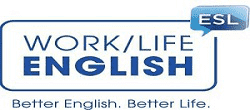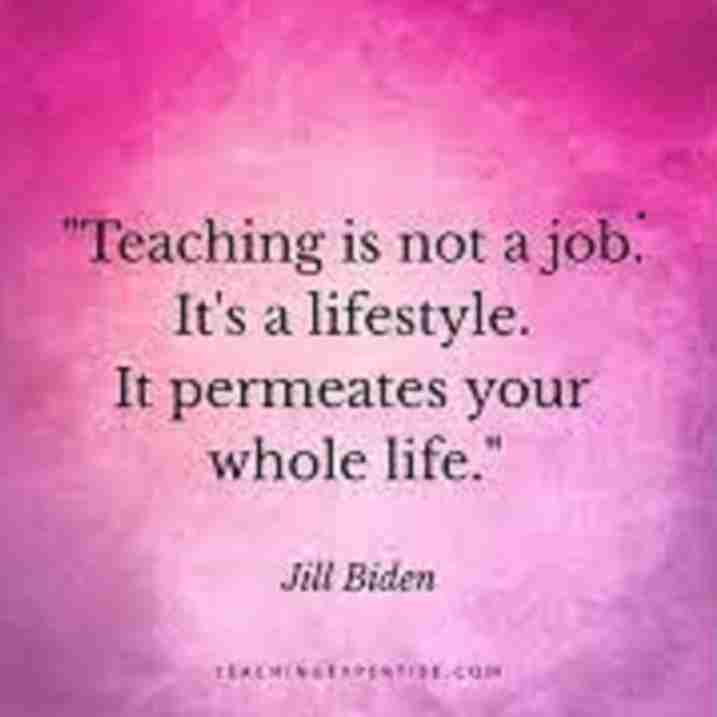
Many of our ESL and Literacy improvement connections have been talking about how much more difficult this year is for teaching youth and adults than those before it. And it is especially challenging for educators starting their careers teaching ESL and Literacy improvement.
At Work/Life English, we like to help make life for Adult Education instructors less stressful, easier, and more enjoyable. First, we’ll share some de-stressors that may help, and then some free Adult ESL lessons.
De-stressors
Over the years, I have adopted a few basic principles that make my life more comfortable and productive. The most helpful one is “I/you/we are not always able to do what you think.” Said another way: Thinking is not (the same as) doing!
In my younger years, solving a major world problem was my goal and expectation. When it became obvious that this was going to be REALLY difficult, I doubled down on my efforts. After all, EVERY problem has a solution, right? Gradually -- after several years -- it became clear that I was not succeeding. By that time, I was so frustrated, angry, and stressed, that working with others (and with myself) had became difficult. I was dysfunctional.
That’s when I began to look at myself. That’s when I began questioning whether there was something about me that was keeping me from succeeding. After much soul searching, and a LOT of counseling, clarity arrived: Wanting to do something, and imagining doing it, yet failing to do it again and again, strongly suggests you cannot do it!
Well, OK, I can believe that. There are lots of things I know I can’t do, and I know better than to try to do them. But these things I feel that I should do, and should have been able to do, but couldn’t get done…? How do I know if they are not for me to do?
It took me a lot of thinking and working with ideas, methods, and self help programs to answer this question, but I finally did: If I know what to do, DO IT NOW! Right now. If I don’t do it now, or if I CAN’T do it right now, then set it aside and try something else. Find something I CAN do right now and do IT.
I often revisit those can’t do items and check if I know what to do at that point and CAN do it. Sometimes I can and sometimes I can’t. BUT, I don’t obsess about them, because I’m too busy doing the things that I CAN.
If you are like me, you may want to try this method. Remember, it takes a while to become good at it -- like learning to drive a car, or to skate well, or to ski/snowboard/ride the waves well, or …. .
When you’re feeling: “I can do this.” STOP. And ask a question like: “What can I do about this RIGHT NOW?” NOW DO IT! If you are not doing it, if you still have uncertainty, then accept the fact that you cannot do it, right now. So set a time /date to check later, and move on to something you actually can and do it. Try it in your personal life and in your profession.
FREE Adult ESL Lessons
Here is another idea that may be helpful when you can’t do it right now: Don’t re-invent the wheel!
Applying this idea has saved me enormous amounts of time, effort, and misery. Whenever I am challenged to do something unfamiliar, and am struggling, I do some research to find a few examples of the kind of thing I need to do, and use them to guide me.
If I need more help, I find people who know how to do it, and get help/information from them. Then I apply their ideas and materials to help me do my task, or create my product. Much less stressful, quicker, and often a better result.
So, If you knew where you could get a “wheel” that fits your teaching need(s), instead of (re)creating one, would you check it out? If it was good, wouldn’t you use it in your curriculum to help you students?
If you said YES, then check out WorkLifeEnglish.com for an abundance of Adult ESL and Literacy Improvement materials with how-to instructions included that make them easy to use.
Here are some FREE samples that can save you from having to reinvent the wheel:
- Recognize and Spell Initial Sounds in Words

-
Begin Oral-Skills Training by Discriminating Sounds in Names (of Letters & People)

3. Reading/Writing: The Point of Personal Communication (Cards & Letters)
 4. Grammar: Use the Simple Present & Present Continuous (Progressive) in Statements
4. Grammar: Use the Simple Present & Present Continuous (Progressive) in Statements



